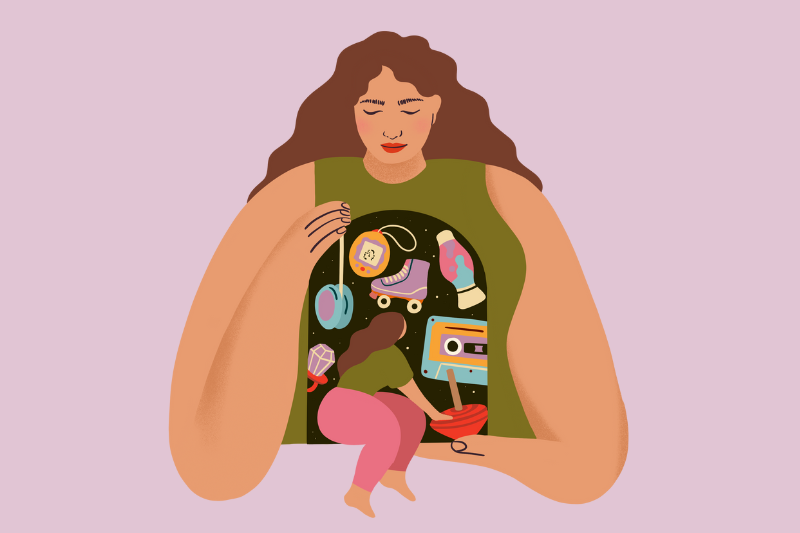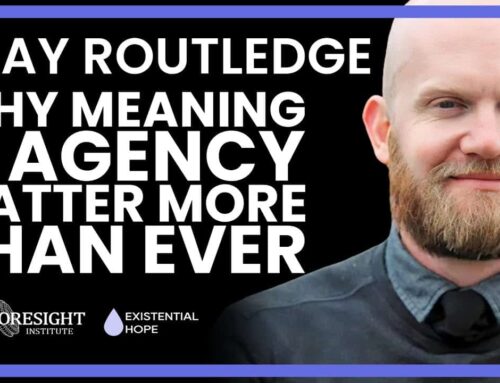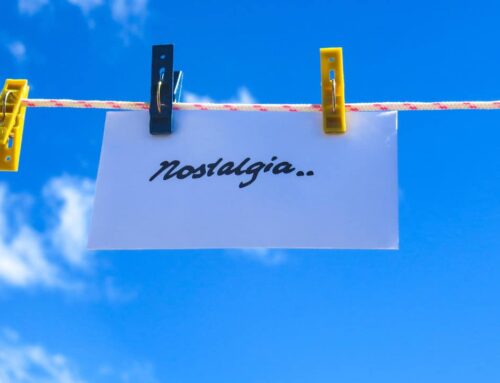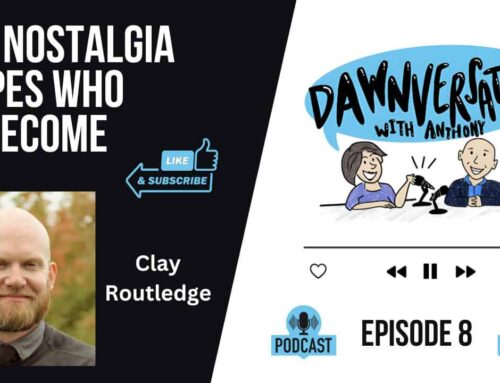
Excerpt:
When people walk into Keri Piehl’s retro toy store in Albuquerque, N.M., their eyes light up. Wooden spinning tops, Yo-Yos, Trolls, rainbow lava lamps, scratch-and-sniff stickers—it’s like time travel, unlocked.
Some visitors make a beeline for the games and puzzles, eager to relive their glory days. “I sell a ton of jacks to grandparents,” Piehl says. “I always joke that I should have an over-50 league, because every single grandma tells me they were the best at jacks.” Others simply want to settle a score. Grandfathers, in particular, enjoy bringing up old marble-related injustices—like the time so-and-so cheated to win the game. “They’re still salty,” she laughs.
Indulging in this sort of nostalgia offers a host of wellbeing benefits, experts say. But that hasn’t always been clear. The concept has a complicated past: “Nostalgia” was coined in the 1600s by a Swiss medical student to describe homesickness among soldiers serving in European wars—essentially, the pain of longing to return to one’s native land. (“Nostos” translates to “return,” and “algos” means “pain.”) Because these feelings triggered anxiety and even physical ailments, “it was originally thought of as a brain disease,” says Clay Routledge, a psychologist who’s vice president of research and director of the Human Flourishing Lab at Archbridge Institute, a D.C.-based nonprofit research organization. “There were weird ideas like, maybe it’s demonic forces, or maybe it’s the clanging of cowbells causing damage to their inner ear.”
For centuries, scholars and medical professionals continued to assume nostalgia was detrimental. But that understanding has evolved, and more recent research, including studies led by Routledge, suggests that actually, yearning for the past has an upside: It helps us feel more connected to other people—while lowering prejudice toward “out-groups” (people who are, say, a different ethnicity or age) and increasing our ability to offer emotional support. Nostalgia can also help us find meaning in life, build self-esteem, and allow us to focus more on being true to ourselves, rather than getting caught up in extrinsic standards; plus, it can make us happier. Interestingly, it’s as much about building a better future as it is the past, experts say.
“Originally, I said, ‘OK. The best way to think about nostalgia is it’s this psychological defense mechanism—when life is uncertain and unstable, we look to the certainty and comfort of the past, and that makes us feel better,’” notes Routledge, whose book, Past Forward: How Nostalgia Can Help You Live a More Meaningful Life, will be published in December. “And that’s definitely true.” But he’s also discovered something surprising: When people share nostalgic memories, many are future-oriented. For example, someone might say: “When I was a kid, I spent summers with my grandmother; she’s no longer with us, and that makes me sad. But I cherish that time in my life, and it inspires me to create memories with my own family.” “It’s looking backwards,” Routledge says, “but it’s because you want ideas for how to move forward.”
Here, Routledge and other experts share their favorite ways to tap into nostalgia’s benefits.
Read the full article at TIME Magazine.
Read about Past Forward: How Nostalgia Can Help You Live a More Meaningful Life here.





